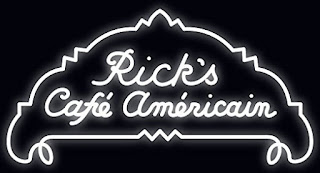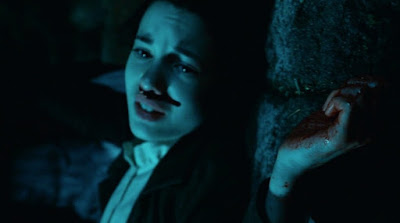WORK IN PROGRESS Film Analysis: Buster Keaton Short Films.
'One Week':
Full Short Film: https://www.youtube.com/watch?v=QBGBj6cse1M
Wikipedia Page: https://en.wikipedia.org/wiki/One_Week_(1920_film)
IMDB Page: https://www.imdb.com/title/tt0011541/
The short film, 'One Week', directed by and starring the famed, Buster Keaton (https://en.wikipedia.org/wiki/Buster_Keaton), is a remarkable example of early cinematic storytelling as well as being a film that adeptly undermined a number of contextually relevant conventions in order to convey an effective comical narrative. The works of Buster Keaton are (often) know to experiment with the limits of what one can convey within a narrative through the implementation of planned elaborate stunts and creative film editing (, post-filming). 'One Week' could easily be identified as one of his best works since it takes the standard conventions of a romantic narrative and flips it on its head; in short, the narrative features two newlyweds, (each played by Buster Keaton and Sybil Seeley,) the newly established couple then proceed to move to their new home only to discover that they are the ones who must construct it, from here, Buster Keaton takes every opportunity he is presented with and makes a practical joke out of it (through the abundant usage of expressive physical humour).
As the main star and director of (most of) his short films, Keaton has full control over how each scene within the film is visually conveyed to the audience. His cinematic preferences have carried on throughout the generations, some of which have greatly inspired a number of contemporary directors; an excellent example of this effect would be the works of the famed director, 'Wes Anderson', whose stylistic preferences have obviously been constructed around the framework of Buster Keaton's original comedic shorts.
'High Sign':
Full Short Film: https://www.youtube.com/watch?v=6qY6_jAxjUk&t=411s
Wikipedia Page: https://en.wikipedia.org/wiki/The_High_Sign
IMDB Page:
The short film 'High Sign', directed and starring the famed 'Buster Keaton' is a remarkable example of how practical humour could be visually delivered more effectively through the strategic use of cinematography and film form. Within the 21-minute running time of 'High Scene', Keaton conveys a number of reoccurring contextually relevant concepts and themes that have appeared in both his past and future works; one of which is the frequent implementation of animals that have a humorous role within the narrative (if only in small part). Keaton also plays on the idea of an unnamed stranger/foreigner taking on the role of the protagonist, this allows for morally grey decisions to take place within the narrative because the main character is fundamentally outside of the social norm. The overall plot is relatively basic, drawing on simple, recognisable plot hooks to give the impression of a developing narrative when in reality Keaton is simply attempting to create opportunities for new gags and the implementation of more elaborate (comedic) settings.
'Scarecrow':
Full Short Film:
Wikipedia Page:
IMDB Page:
The short film, 'The Scarecrow', directed and starring Buster Keaton is less a narrative piece as it is a 19-minute long set of visually comedic gags. Each instance within the film is visually conveyed in an effective manner, this allows for the audience to get quickly lost within the overall complexity of each comedic set piece (, the most notable one being the 'serving breakfast scene' that is featured during the opening of the film). 'The Scarecrow' is an excellent example of how Keaton is capable of creating a piece of visually entertaining media without having to 'fall back' onto the standard tropes of cinema/film making (that were contextually relevant during the time period).
'Cops':
Full Short Film: https://www.youtube.com/watch?v=bMxMuoMAuXQ&t=83s
Wikipedia Page:
IMDB Page:
Full Short Film: https://www.youtube.com/watch?v=QBGBj6cse1M
Wikipedia Page: https://en.wikipedia.org/wiki/One_Week_(1920_film)
IMDB Page: https://www.imdb.com/title/tt0011541/
The short film, 'One Week', directed by and starring the famed, Buster Keaton (https://en.wikipedia.org/wiki/Buster_Keaton), is a remarkable example of early cinematic storytelling as well as being a film that adeptly undermined a number of contextually relevant conventions in order to convey an effective comical narrative. The works of Buster Keaton are (often) know to experiment with the limits of what one can convey within a narrative through the implementation of planned elaborate stunts and creative film editing (, post-filming). 'One Week' could easily be identified as one of his best works since it takes the standard conventions of a romantic narrative and flips it on its head; in short, the narrative features two newlyweds, (each played by Buster Keaton and Sybil Seeley,) the newly established couple then proceed to move to their new home only to discover that they are the ones who must construct it, from here, Buster Keaton takes every opportunity he is presented with and makes a practical joke out of it (through the abundant usage of expressive physical humour).
As the main star and director of (most of) his short films, Keaton has full control over how each scene within the film is visually conveyed to the audience. His cinematic preferences have carried on throughout the generations, some of which have greatly inspired a number of contemporary directors; an excellent example of this effect would be the works of the famed director, 'Wes Anderson', whose stylistic preferences have obviously been constructed around the framework of Buster Keaton's original comedic shorts.
'High Sign':
Full Short Film: https://www.youtube.com/watch?v=6qY6_jAxjUk&t=411s
Wikipedia Page: https://en.wikipedia.org/wiki/The_High_Sign
IMDB Page:
The short film 'High Sign', directed and starring the famed 'Buster Keaton' is a remarkable example of how practical humour could be visually delivered more effectively through the strategic use of cinematography and film form. Within the 21-minute running time of 'High Scene', Keaton conveys a number of reoccurring contextually relevant concepts and themes that have appeared in both his past and future works; one of which is the frequent implementation of animals that have a humorous role within the narrative (if only in small part). Keaton also plays on the idea of an unnamed stranger/foreigner taking on the role of the protagonist, this allows for morally grey decisions to take place within the narrative because the main character is fundamentally outside of the social norm. The overall plot is relatively basic, drawing on simple, recognisable plot hooks to give the impression of a developing narrative when in reality Keaton is simply attempting to create opportunities for new gags and the implementation of more elaborate (comedic) settings.
'Scarecrow':
Full Short Film:
Wikipedia Page:
IMDB Page:
The short film, 'The Scarecrow', directed and starring Buster Keaton is less a narrative piece as it is a 19-minute long set of visually comedic gags. Each instance within the film is visually conveyed in an effective manner, this allows for the audience to get quickly lost within the overall complexity of each comedic set piece (, the most notable one being the 'serving breakfast scene' that is featured during the opening of the film). 'The Scarecrow' is an excellent example of how Keaton is capable of creating a piece of visually entertaining media without having to 'fall back' onto the standard tropes of cinema/film making (that were contextually relevant during the time period).
'Cops':
Full Short Film: https://www.youtube.com/watch?v=bMxMuoMAuXQ&t=83s
Wikipedia Page:
IMDB Page:







Comments
Post a Comment